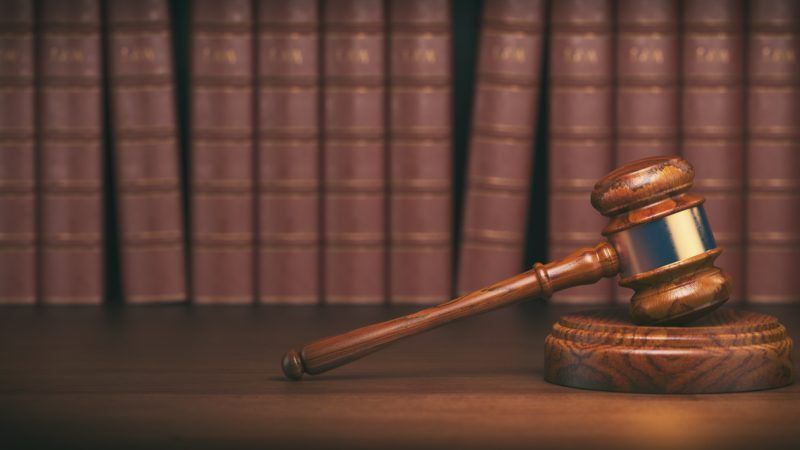This Crackdown on a Jury Nullification Activist Violates the First Amendment
What’s at stake in Michigan v. Wood

"Leafletting and commenting on matters of public concern are classic forms of speech that lie at the heart of the First Amendment, and speech in public areas is at its most protected on public sidewalks, a prototypical example of a traditional public forum." So held the U.S. Supreme Court in Schenck v. Pro-Choice Network of Western New York (1997). Unfortunately, the Michigan Court of Appeals has taken a dimmer view of what the First Amendment protects. In Michigan v. Wood (2018), that court upheld the criminal conviction of Keith Eric Wood for handing out pro-jury-nullification pamphlets while standing on the public sidewalk outside his local courthouse. The Michigan Supreme Court is now weighing Wood's appeal.
The matter arose in 2015, when Wood took to the sidewalk in front of the courthouse in Big Rapids, Michigan, and distributed pamphlets he had obtained from the Fully Informed Jury Association. "You may, and should, vote your conscience," the pamphlets told prospective jurors. "You cannot be forced to obey a 'juror's oath.'"
Two of the people who took the pamphlets had been summoned to court that day for jury duty. This led the authorities to bring Wood up on charges of jury tampering, a crime defined by the state as "willfully attempt[ing]…to influence the decision of a juror in any case by argument or persuasion, other than as part of the proceedings in open court in the trial of the case."
The Michigan Court of Appeals rendered its judgment on Wood's fate three years later. Pushing back against the argument that Wood's conduct was "pure speech" and that "the state has no compelling interest in preventing a person from distributing educational pamphlets to potential jurors in public spaces," Chief Judge Christopher Murray ruled that his behavior was "precisely the type of speech states have a compelling interest in regulating through validly enacted statutes."
In a friend of the court brief submitted to the Michigan Supreme Court on Wood's behalf, Cato Institute legal scholars Clark Neily and Jay Schweikert offer a persuasive diagnosis of that ruling's constitutional ills. "The State not only lacks a compelling interest in censoring the speech at issue here," the brief points out, "but rather has no legitimate interest at all in preventing people like Mr. Wood from educating their fellow citizens about the injustice-preventing role that juries have played in our system of government for more than eight centuries."
Exactly. We're not talking here about a violent thug menacing jurors in the hopes of gaining an acquittal. We're talking about a civically minded citizen exercising a bedrock constitutional right in a public forum. There is no good justification for this censorship. The Michigan Supreme Court should overrule the lower court's judgment and wipe Wood's speech-suppressing conviction from the books.


Show Comments (32)